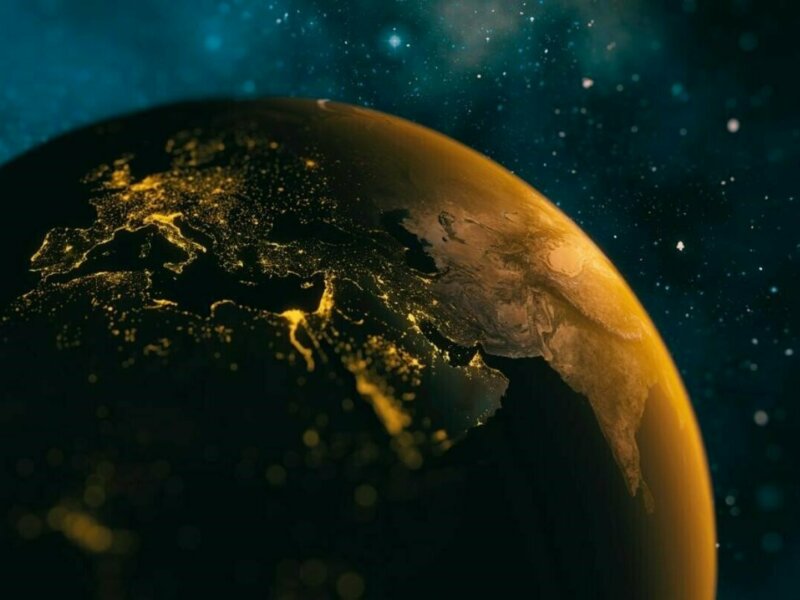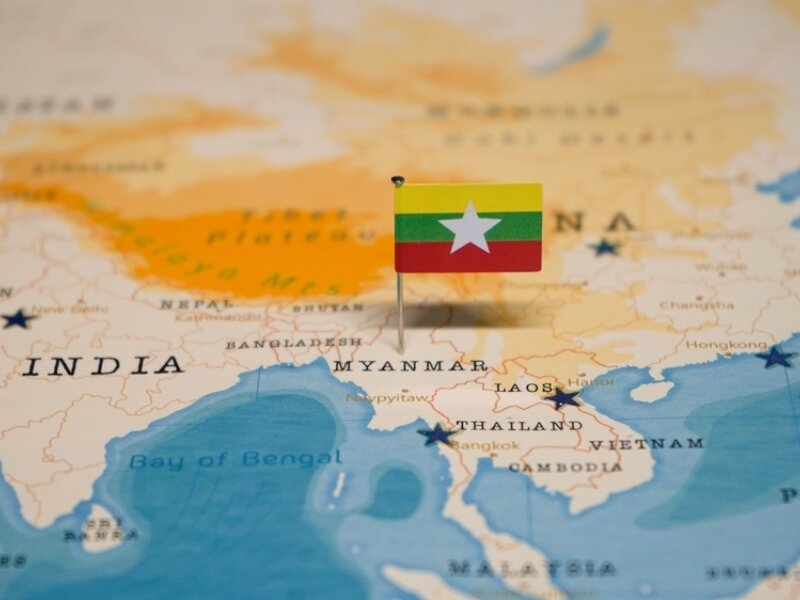Trump, Gaza and the Arab World
The article by Umberto Tavolato, Director of the Special Projects Unit at the Med-Or Italian Foundation, was published by Il Mattino on the 7 of Februrary

Donald Trump's plan to make the United States "take control and ownership” of the Gaza Strip and facilitate the transfer of its population in foreign countries, with the goal of transforming it into the "Riviera of the Middle East" has received a clear rejection from Arab states. These include Jordan and Egypt—the countries where Trump envisions relocating the Palestinians of Gaza—along with the Gulf states, such as Saudi Arabia, the United Arab Emirates, and Qatar, which in Trump’s vision are expected to be the financiers of this initiative.
The message of unity from the Arab capitals against the scenario of mass expulsion of the Palestinians of Gaza was also conveyed by Prince Turki al-Faisal, the former Saudi ambassador to the United States and former head of intelligence for the kingdom, who has long represented an authoritative Arab voice on the Palestinian issue. During Christiane Amanpour's program on CNN, appearing in a Palestinian keffiyeh, Turki, who in Italy is a member of the international board of the Med-Or Italian Foundation, stated that the Trump Plan is a fantasy and amounts to ethnic cleansing against the Palestinians, emphasizing instead that the best solution would be the recognition of a Palestinian state, which would also pave the way for the normalization of diplomatic relations between Israel and Saudi Arabia. The Arab position on a two states solution aligns with the European stance, as reiterated by Foreign Minister Antonio Tajani, who is visiting Israel today.
To be precise, the idea of redeveloping Gaza under international leadership was not new. Discussions about a potential role for Arab states in this context have been ongoing for some time, with the United Arab Emirates at the forefront of speculations due to their signing of the Abraham Accords and their role in facilitating humanitarian corridors for the Palestinians. The Gulf states would certainly be interested in redeveloping Gaza and investing heavily in reconstruction efforts. They are indeed accustomed to audacity and luxury real estate projects, as demonstrated by the Saudi Neom project and the successful experience of Dubai. However, what distinguishes them from Trump is the negotiating style. The newly elected president enjoys announcing glamorous ideas to the media before discussing them with interlocutors, thinking that this prepares the ground for further concessions—a tactic employed for trade tariffs, Greenland, and now Gaza. The Arab countries, on the other hand, being mostly monarchies, have a much more conservative approach approach to media and prefer to define every detail before communicating to the broader public.
By placing the Arab states in front of a revolutionary proposal on such a hypersensitive issue for their populations as the Palestinian question, Trump received a blunt rejection from the region. Consequently, the plan will not fly. Trump’s statements, however outlandish, will have nonetheless significant consequences.
First, what Trump announced would imply the end of American policy since the early 1990s in support of a two-state solution - that is, the establishment of an independent Palestine alongside Israel. Declaring this alongside Benjamin Netanyahu, who has always opposed the idea of "two states for two peoples," is a huge political victory for the Israeli prime minister.
Second, the immediate issue is the ceasefire in Gaza, which may be weakened as a result. Hamas and other Palestinian armed groups may feel the need to respond to Trump by using force against Israel. The widespread sentiment among Palestinians is that Israel is using the war against Hamas to destroy Gaza and expel the population—and now they see the US giving a blessing to to Israel's plans. Trump’s plan the will also feed the Jewish ultranationalists, which are part of Nethanyau government coalition, who want the Gaza war to resume with the aim of removing the Palestinians and replacing them with Jews.
In exchange, Trump may want Israel’s cooperation in seeking a negotiated solution with Iran. After the defeat of Hamas in Gaza, Hezbollah in Lebanon, and Bashar al-Assad in Syria, Iran is at its weakest point. Israel would have the opportunity to deliver a decisive blow also to Iran’s nuclear program. However, this decisive push would require American military intervention, which seems unlikely at the moment. Trump wants peace deals, not new wars.
In this context, despite this week's announcement of a return to a policy of "maximum pressure" against Iran, Trump has emphasized his commitment to negotiating a new nuclear deal with Iran that could spare the Middle East a new war. On this, the tycoon finds agreement with the Gulf states, which in recent years have sought a path of dialogue with Tehran. This represents a significant turnaround for Trump compared to the policy adopted during his first term when he withdrew the United States from the nuclear agreement (JCPOA) concluded by Barack Obama.
Much has changed in the region since Trump’s first term ended in January 2021. Hisnsecond administration is approaching the Middle East differently than it did in the past. In this context, the extravagant announcement regarding Gaza strengthens the fears of those who worry that the "two states, two peoples" solution has never seemed so distant, almost more of a slogan than a concrete reality.
In this scenario, despite this week's declaration of a renewed "maximum pressure" strategy against Iran, Trump has reiterated his commitment to pursuing a new nuclear agreement with the country, one that could help prevent another conflict in the Middle East. This stance aligns with the Gulf states, which have recently favored dialogue with Tehran. This marks a notable shift for Trump, especially when compared to his first term's approach, during which he pulled the United States out of the nuclear deal (JCPOA) established by Barack Obama.
A lot has changed in the region since Trump completed his first term in January 2021. His second administration is approaching the Middle East with a different perspective than before. Within this framework, the dramatic announcement concerning Gaza amplifies concerns among those who fear that the "two states, two peoples" solution feels more elusive than ever—more of a catchphrase than a tangible possibility.
The Plan has, however, also awakened Arab consciousness and the Palestinian issue, which is far from dead.



